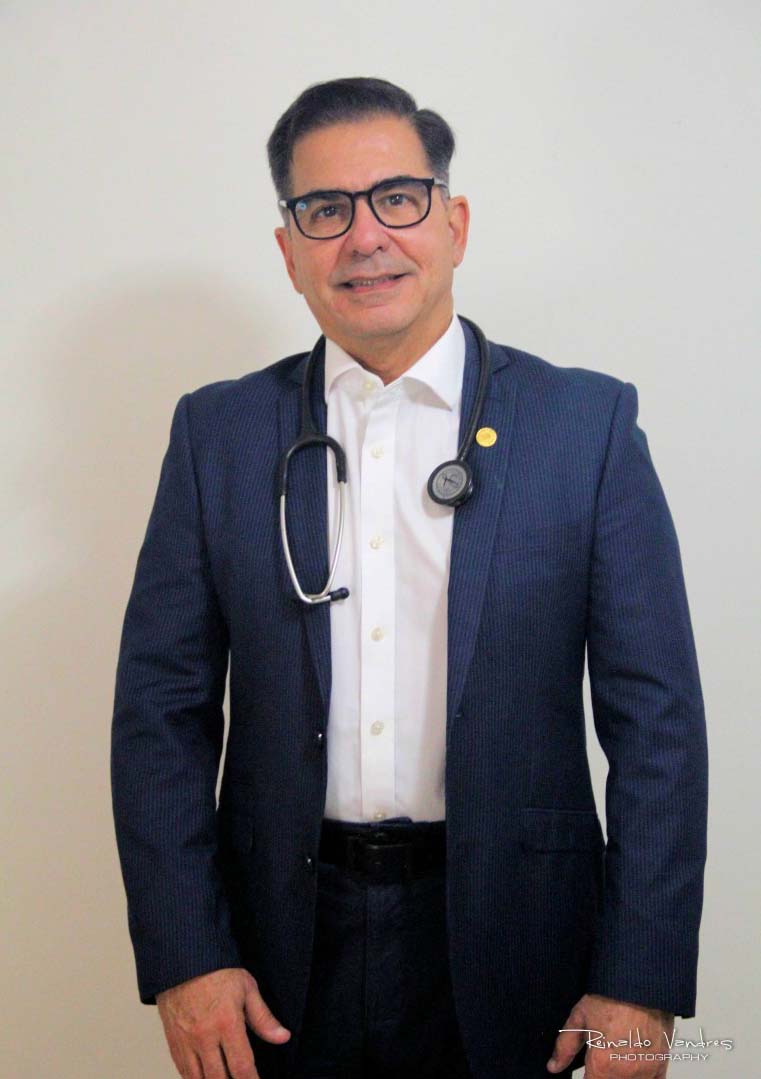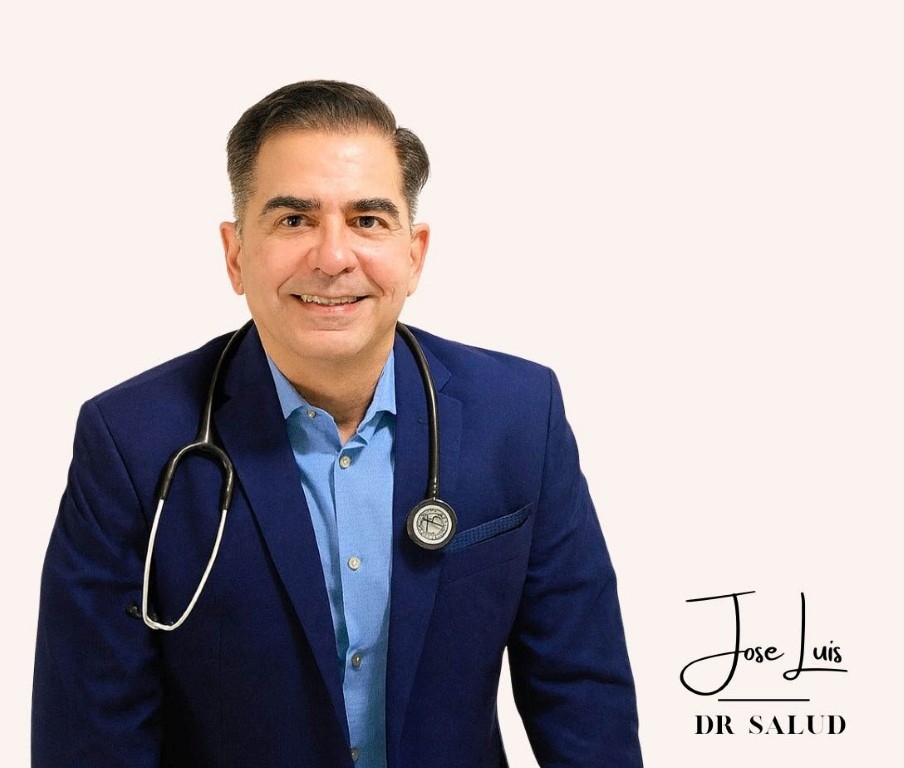Autism & Folinic Acid: A Real Source of Hope for Many Children with Autism Spectrum Disorder.
Tampa, Florida - November 24, 2025 - Venezuelan pediatrician and specialist in growth, development, and nutrition, Dr. Jose Luis Martínez, has dedicated recent years to updating and disseminating scientific advances in child health. Through social media educational content, conferences, and public outreach, he has delivered clear, evidence-based guidance to thousands of Spanish-speaking families across the United States and worldwide. Today, he presents his latest press article on emerging strategies aimed at improving the quality of life of children with Autism Spectrum Disorder (ASD) and their families.

Dr. Jose Luis Martínez – Pediatric Growth, Development & Nutrition Specialist - photography by Reinaldo Vandres.
Autism Spectrum Disorder (ASD) is a developmental condition that begins in early childhood and may affect communication, social interaction, eye contact, behavior patterns, and adaptability to changes in routine. Many children show repetitive behaviors, limited food preferences, or an intense focus on specific objects or topics. ASD occurs more frequently in boys than in girls (approximately 2–3 boys for every girl), and diagnoses have increased globally over the past two decades. Importantly, ASD is not caused by a lack of discipline or affection at home. With the right interventions, many children can make meaningful progress.
Recent advances in nutritional neuroscience have opened a new window of hope through the use of folinic acid (also known as leucovorin), an active form of vitamin B9 that may help improve communication, language, and social behavior in many children.
Why Folinic Acid Can Make Such a Difference.
The commonly known “folic acid,” widely used during pregnancy, is only a synthetic form of a broader group of compounds known as folates. Inside the brain, cells rely on an active form of folate, which enters through a specific “transport system” located in the nervous system.
Recent Clinical Evidence.
Low folate levels in the brain can affect some children with ASD through two distinct mechanisms, which may occur alone or together:
1. Difficulty transporting folate into the brain.
To cross the blood–brain barrier, folate requires a transporter — like a “small truck” carrying it through a checkpoint. In some children, the immune system mistakenly produces autoantibodies that block this transporter, preventing folate from entering the brain even when blood levels appear normal.
2. Difficulty activating folate inside the body.
Once folate enters the system, it must be activated to become usable. This activation depends on genes such as MTHFR and MTRR, which function as internal instructions. When these genes carry certain variations, folate activation becomes less efficient.
In both scenarios, the result is the same: reduced folate levels in the brain.
Studies show that 6 to 7 out of 10 children with ASD may have these autoantibodies that block folate transport. The encouraging news is that many of these children show significant improvement when treated with folinic acid, which uses an alternative pathway to enter the brain. Improvements have been documented in language, attention, and social interaction, particularly in children with higher autoantibody levels.
A 2024 double-blind clinical trial conducted at the Institute of Medical Sciences of India included 80 children with autism between ages 2 and 10. Those who received folinic acid demonstrated significantly greater improvements than those who did not. Most notably, children receiving folinic acid showed measurable gains in verbal communication, reduced irritability, and fewer repetitive behaviors — with the greatest improvements observed in those with elevated folate-receptor autoantibodies.
Importantly, no significant adverse effects were reported, reinforcing that folinic acid is a safe supplement when used under medical supervision.
Folinic acid is not a “miracle cure” nor a replacement for foundational ASD treatments. Instead, it elevates the therapeutic strategy. Its function is biological: to help the brain obtain the folate it needs to function more efficiently. Rather than replacing behavioral, educational, sensory, or nutritional interventions, folinic acid may enhance their results. When added to a comprehensive plan, progress is often more consistent and visibly meaningful for families.
A Global Approach: Nutrition, Microbiota, Supplementation & Behavior.
The global therapeutic model includes five essential pillars:
1. Comprehensive evaluation of the child.
This includes medical history, basic genetic evaluation when indicated, methylation status, gastrointestinal function, allergies, feeding selectivity, and environmental factors.
2. Normalizing daily nutrition.
A whole-food, clean and varied diet can significantly influence developmental progress. Most children benefit from reducing ultra-processed foods, avoiding bovine dairy, limiting added sugars, decreasing refined grains, and introducing new foods gradually with sensory-based techniques.
3. Supporting the intestinal microbiota.
Many children with ASD experience gut imbalances that affect emotional and behavioral regulation. Helpful strategies include targeted probiotics, prebiotics, increased dietary fiber, moderation of simple carbohydrates, and avoiding foods that ferment excessively.
4. Strategic supplementation.
Plans must be personalized. Commonly useful supplements include: high-quality multivitamins, omega-3 DHA/EPA, methylated B vitamins (especially when MTHFR or MTRR variants are present), minerals such as zinc and magnesium, and gentle antioxidants. These support brain metabolism and may enhance the effects of folinic acid.
5. Ongoing supervision with a multidisciplinary team.
Progress should be monitored every few weeks or months, reviewing growth velocity, digestive health, behavior, sleep, and relevant labs. Teams often include an ASD-experienced pediatrician, nutritionist, occupational therapist, speech therapist, and other professionals essential to the child’s advancement.
A Message for Families Around the World.
Folinic acid provides a real, scientifically grounded source of hope for many children worldwide. More research is still needed, but today we know that when treatment is personalized — considering nutritional factors, microbiota, metabolism, and genetics — the potential for improvement is far greater than previously believed.
For parents of children with ASD you are not alone:
Talk to your physician. Ask about these options. Explore all five pillars. Seek credible information. Every child is unique, and every step forward — no matter how small — is a monumental victory. There is always something that can be done to help a child improve.

Dr. Jose Luis Martínez training medical professionals in Venezuela on evidence-based pediatric care for children with ASD.
Press Release by Jose Luis Martínez, MD
Information contained on this page is provided by an independent third-party content provider. XPRMedia and this Site make no warranties or representations in connection therewith. If you are affiliated with this page and would like it removed please contact [email protected]


